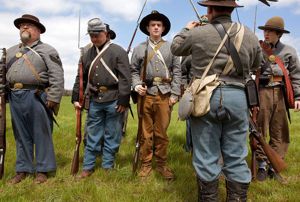Weekly Thought – August 28, 2018
Fred highly regarded discipline. He often used the phrase “paying the price” to indicate self-discipline. He believed in preparation. What people saw as spontaneity and “off the cuff” wisdom or even humor was the result of study, deep thought, and life experience.
Thank you for being faithful supporters of the Breakfast With Fred Leadership Institute and the What’s Next Roundtable.
The Importance of Discipline
For years I have observed the importance of discipline in a person’s area of expertise. Many, particularly in performance, live undisciplined lives but are very rigorous about their art.
In a documentary about Pavarotti it is interesting to see how much of a perfectionist he is in his music and yet totally unregulated in his eating. A film on Elvis Presley pointed out the discrepancy between his discipline in his personal life and his creative life. An associate told how he would sit at the piano working for hours on his phrasing going over and over until it was exactly right. He was totally disciplined about his singing. Even some geniuses such as Ernest Hemingway who lived a dissolute and destructive life said, “Every morning at 8 I bite the nail.” His professionalism was bounded by strict rules, but his personal habits showed a total lack of disciplined activity —- unless one sees his carousing as a highly developed skill.
Bishop Fulton Sheen when speaking at a retreat for priests said, “People listen when I talk. It is because everyday since I have been a priest I have spent one hour with my Lord. Even when I only had two hours of sleep I walked the floor and prayed for that hour.” His disciplined spiritual life gave him peace and a sense of reality. He believed this time with the Lord as a source of power.
Unfortunately, there are people of superior talent who will not submit to discipline. They are not known or recognized for their abilities. A man asked me to meet with his son to talk about his future opportunities. The young man tried to impress me with all his credentials. He told me of his great giftedness and endless opportunities. He said his biggest problem was dealing with so much potential. He was burdened with his genius. When I asked him about actual accomplishment, he had nothing to report. He clearly lacked personal discipline. He may go through life coasting on potential, but never bringing his talent into tow.
A young man I met was an exceptional runner. His outstanding performance gained the attention of area coaches. He was seen as one with potential for world class speed and Olympian possibilities. He refused discipline, wanting to take the easy way of simply using his natural speed. Eventually he lost his college scholarship. Laziness was his enemy.
Discipline is part of building good habits which result in healthy, effective life reflexes.
This week think about: 1) Where have I paid the price to accomplish a goal? 2) What am I doing to make discipline a key element of my daily life? 3) Who has helped me develop discipline in the important areas of my life?
Words of Wisdom: “Discipline is part of building good habits which result in healthy, effective life reflexes.”
Wisdom from the Word: “Each competitor must exercise self-control in everything.” (1 Corinthians 25:9a NET Bible)

 Brenda’s Blog – July 31, 2018
Brenda’s Blog – July 31, 2018 Brenda’s Blog – July 17, 2018
Brenda’s Blog – July 17, 2018